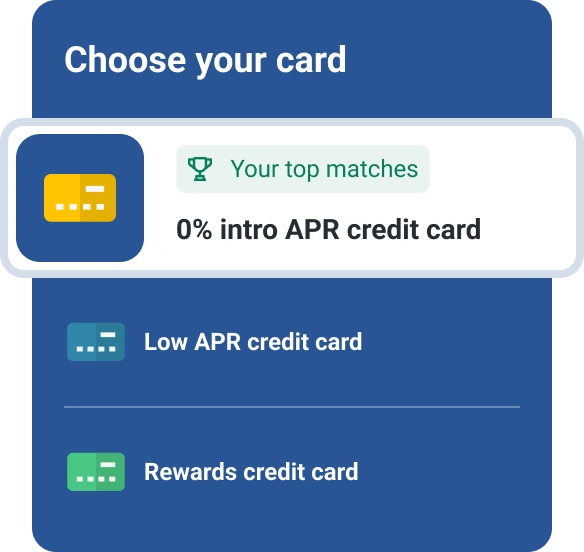What Credit Score Do You Need for a 0% APR Credit Card?

If you're looking for a 0% APR (annual percentage rate) credit card to help you pay off existing debt or make a large purchase, you may wonder what credit score you'll need to qualify. You typically need a good to excellent credit score to be approved for 0% interest credit card offers, which generally means a FICO® ScoreΘ of 670 or higher.
If you receive an offer for a 0% APR credit card in the mail or online, that doesn't mean you'll be approved. Before you apply, here's what you need to know.
Good to Excellent Credit Is Needed for 0% APR Offers
To qualify for 0% APR credit card offers, you'll need a good to excellent credit score. While that score range can vary depending on which credit scoring model the credit card issuer uses, FICO® Scores are used in most credit decisions, so let's focus on those.
A FICO® Score of 800 to 850 is considered exceptional; a FICO® Score in the 740 to 799 range is considered very good; and a FICO® Score of 670 to 739 is considered good. The credit score you need to qualify for a 0% APR credit card will vary by credit card issuer and even by card, but anything below 670 could make the approval process significantly more challenging. If your score is near or above 800, however, you're much more likely to qualify for the card of your choice.
When Does It Make Sense to Get a 0% APR Credit Card?
Does getting a 0% APR credit card make sense for you? Before you apply for a 0% APR credit card, here are some factors to consider.
- How long is the introductory 0% APR period? Credit cards offering 0% APR come with a catch: That 0% interest rate doesn't last forever. It's a promotional rate good for a limited time. Legally, the promotional period must last at least six months (unless you are over 60 days late on a payment), but you can find cards with promotional periods as long as 21 months. If you're planning to transfer a high balance from another credit card with a high interest rate to the 0% APR card, make sure you'll be able to pay off the balance during the introductory period (or at least make a significant dent in it).
- What types of transactions does the introductory 0% APR apply to? Don't assume that the 0% interest rate applies to every transaction. It generally applies to purchases, balance transfers or both, but won't apply to cash advances. To confirm the interest rates charged for different transactions, review the terms of the credit card agreement. (You can find these on the card's application page online or in the offer mailer.)
- What APR will you pay once the promotional period ends? After the introductory 0% APR expires, the card issuer will start charging a standard APR. Look at the credit card terms to find the standard APR; it may be expressed as a range, since you may not know the specific interest rate you qualify for until you're approved.
- What do you want to use the card for? A 0% interest credit card can be a useful tool for transferring balances or making large purchases. If you transfer the balance on a high-interest credit card to a 0% APR card, that balance won't incur any new interest charges until the promotional period ends. Ideally, you'll pay off the balance before it starts accruing interest. You can also use a 0% APR credit card to finance an expensive purchase, like furniture for your new apartment or a once-in-a-lifetime vacation, and pay off the balance over time without accruing interest.
- Are there any fees? Some cards charge annual fees or foreign transaction fees on purchases made outside the U.S., which can add up if you use the card on international trips. If you plan to use your card for balance transfers, you'll likely incur a balance transfer fee of 3% to 5% of the amount you're transferring. (Refer to the card terms for details.)
How Does a 0% APR Affect Your Credit Score?
The interest rate that a credit card charges has no direct effect on your credit score. However, having a new 0% APR credit card in your wallet could indirectly affect your credit score in several ways.
- Reduced debt: If you can transfer a high balance and stop paying interest on that balance, you may find it easier to pay down debts, which can help improve your credit score and your financial situation overall.
- Credit : If you only carry a student loan or car loan and no credit cards, adding a credit card will improve your credit mix, which is a factor in your credit score.
- Hard inquiry: The hard inquiry generated when the credit card issuer checks your credit report will temporarily lower your credit score slightly. If the 0% APR credit card is one of many credit cards you've applied for within a short time, credit issuers may take it as a sign that you're in financial trouble and turning to credit cards to pay your expenses.
- Credit utilization ratio: Getting a new credit card increases the amount of credit available to you, which can help to reduce your credit utilization ratio and improve your credit score. However, if that 0% APR tempts you to rack up a big balance on your new credit card, your utilization rate will rise and could have a negative impact on your credit score.
- Missed payment: A 0% APR card means no interest—not "no payments." Some credit card users assume they don't have to make a monthly payment on a 0% interest card. That's only true if your balance is also zero. Just as with any credit card, you must pay at least the minimum monthly payment on time to keep your account current. Otherwise, you'll not only hurt your credit score, but could also lose your 0% APR long before it's due to expire.
Consider Improving Your Credit Score Before Applying
Just because you received an offer for a 0% APR credit card in the mail or online doesn't necessarily mean you'll be approved. If your FICO® Score is at the low end of "good," taking steps to improve it before you apply for the card will give you a better chance of getting approved.
First, check your FICO® Score. If it's lower than you expected, get a free credit report to look for any issues that need to be resolved, such as incorrect or missing information.
Once you've reviewed your credit report and score, follow these tips to improve your score:
- Focus on bringing any late accounts current.
- Be diligent about making all of your payments on time. If you occasionally forget to pay your credit card bills, use autopay to ensure you never miss a payment going forward.
- Pay down credit card balances and other debts. Keep your credit utilization ratio, or percentage of available credit you're using, under 30% to avoid hurting your credit score—or in single digits for the best scores.
Also consider signing up for Experian Boost®ø to help speed up the process of improving your FICO® Score. This free service gives you credit for on-time utility and cellphone payments, which could give your FICO® Score an immediate bump.
The Bottom Line
A 0% APR credit card can be a valuable addition to your financial toolkit, helping you pay down high-interest debt without accruing more interest. The catch: You need good to excellent credit to get that card. By monitoring your credit score regularly and practicing good credit habits, you can keep your credit score in good shape—and help ensure more 0% APR credit card offers in your future.
Discover low interest credit cards
Keep more cash in your wallet with a low interest credit card. See what offers you qualify for based on your FICO® Score.
See your offersAbout the author
Karen Axelton specializes in writing about business and entrepreneurship. She has created content for companies including American Express, Bank of America, MetLife, Amazon, Cox Media, Intel, Intuit, Microsoft and Xerox.
Read more from Karen

